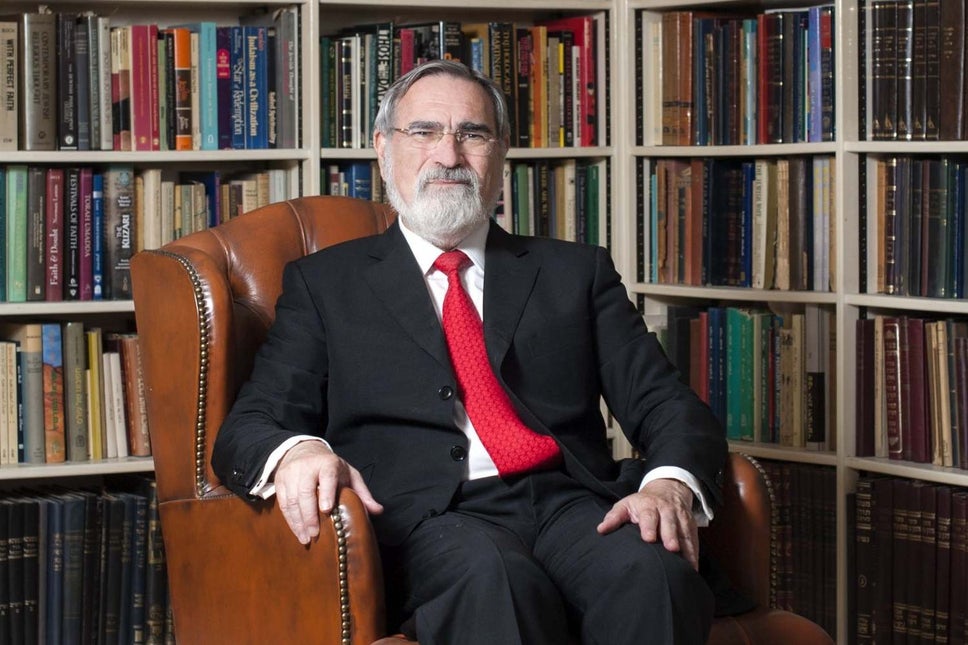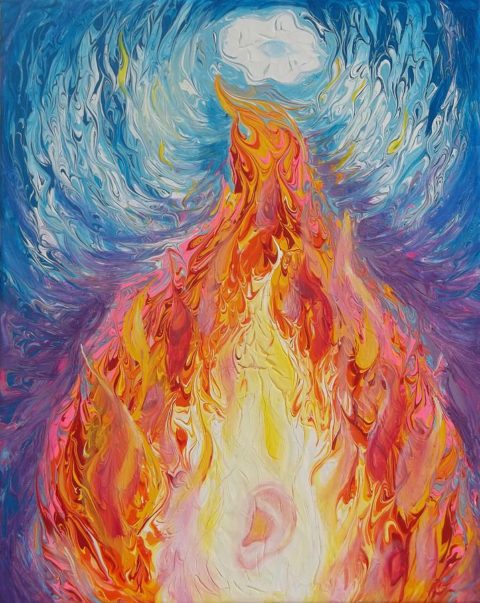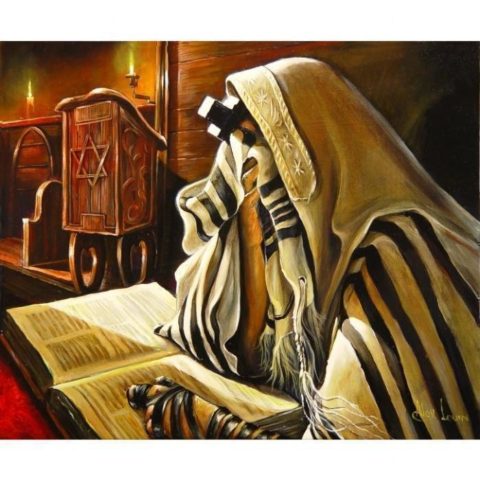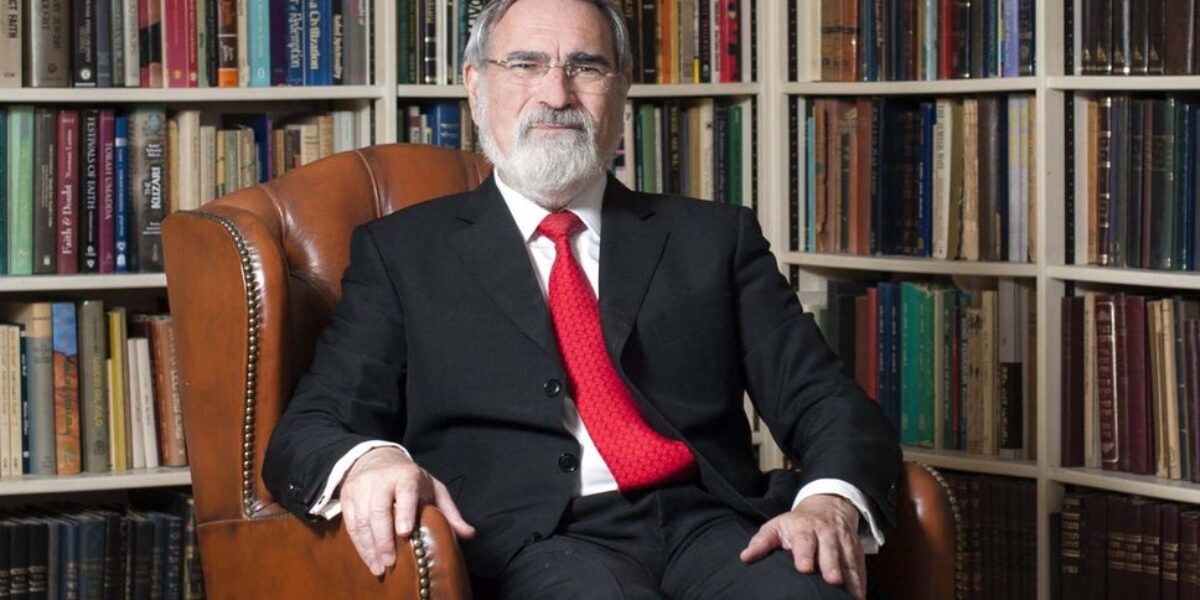Chayei Sarah – Genesis 23:1 – 25:18 (Nov. 13/14)

As the Torah Turns
Rabbi Lader’s Weekly D’var Torah
Chayei Sarah – Genesis 23:1 – 25:18

Rabbi Jonathan Sacks
Last Shabbat, the Jewish world lost a renowned scholar, writer, and rabbinic leader: Lord Rabbi Jonathan Sacks. I have quoted Rabbi Sacks a number of times over the past years, and used a number of his books as the basis for sermon ideas. For me, his Orthodox rabbinate was a rabbinate that sought to balance tradition with modernity, and made “a place at the table” for the many Jewish [and non-Jewish] voices that helped him help us move from “me” to “we.” In memory of Rabbi Sacks, I wanted to share a d’var Torah he wrote last year on this week’s Torah portion – Chayei Sarah – Genesis 23:1 – 25:18. The coincidence of this portion relating the deaths of Sarah and Abraham is not lost on me, and Rabbi’s Sacks’ focus on how one lives one’s life with purpose is a testament to the way he lived his own. JONATHAN SACKS – TO HAVE A WHY CHAYEI SARAH 5780 The name of our parsha seems to embody a paradox. It is called Chayei Sarah, “the life of Sarah,” but it begins with the death of Sarah. What is more, towards the end, it records the death of Abraham. Why is a parsha about death called “life”? The answer, it seems to me, is that – not always, but often – death and how we face it is a commentary on life and how we live it. Which brings us to a deeper paradox. The first sentence of this week’s parsha of Chayei Sarah, is: “Sarah’s lifetime was 127 years: the years of Sarah’s life.” A well-known comment by Rashi on the apparently superfluous phrase, “the years of Sarah’s life,” states: “The word ‘years’ is repeated and without a number to indicate that they were all equally good.” How could anyone say that the years of Sarah’s life were equally good? Twice, first in Egypt, then in Gerar, she was persuaded by Abraham to say that she was his sister rather than his wife, and then taken into a royal harem, a situation fraught with moral hazard. There were the years when, despite God’s repeated promise of many children, she was infertile, unable to have even a single child. There was the time when she persuaded Abraham to take her handmaid, Hagar, and have a child by her, which caused her great strife of the spirit. These things constituted a life of uncertainty and decades of unmet hopes. How is it remotely plausible to say that all of Sarah’s years were equally good? That is Sarah. About Abraham, the text is similarly puzzling. Immediately after the account of his purchase of a burial plot for Sarah, we read: “Abraham was old, well advanced in years, and God had blessed Abraham with everything” (Gen. 24:1). This too is strange. Seven times, God had promised Abraham the land of Canaan. Yet when Sarah died, he did not own a single plot of land in which to bury her, and had to undergo an elaborate and even humiliating negotiation with the Hittites, forced to admit at the outset that, “I am a stranger and temporary resident among you” (Genesis 23:4). How can the text say that God had blessed Abraham with everything? Equally haunting is its account of Abraham’s death, perhaps the most serene in the Torah: “Abraham breathed his last and died at a good age, old and satisfied, and he was gathered to his people.” He had been promised that he would become a great nation, the father of many nations, and that he would inherit the land. Not one of these promises had been fulfilled in his lifetime. How then was he “satisfied”? The answer again is that to understand a death, we have to understand a life. I have mixed feelings about Friedrich Nietzsche. He was one of the most brilliant thinkers of the modern age, and also one of the most dangerous. He himself was ambivalent about Jews and negative about Judaism.[1] Yet one of his most famous remarks is both profound and true: He who has a why in life can bear almost any how.[2] … Abraham and Sarah were among the supreme examples in all history of what it is to have a Why in life. The entire course of their lives came as a response to a call, a Divine voice, that told them to leave their home and family, set out for an unknown destination, go to live in a land where they would be strangers, abandon every conventional form of security, and have the faith to believe that by living by the standards of righteousness and justice they would be taking the first step to establishing a nation, a land, a faith and a way of life that would be a blessing to all humankind. Biblical narrative is, as Erich Auerbach said, “fraught with background,” meaning that much of the story is left unstated. We have to guess at it… With some conspicuous exceptions, we hardly know what any of the Torah’s characters felt. Which is why the two explicit statements about Abraham – that God blessed him with everything, and that he ended life old and satisfied – are so important. And when Rashi says that all of Sarah’s years were equally good, he is attributing to her what the biblical text attributes to Abraham, namely a serenity in the face of death that came from a profound tranquility in the face of life. Abraham knew that everything that happened to him, even the bad things, were part of the journey on which God had sent him and Sarah, and he had the faith to walk through the valley of the shadow of death fearing no evil, knowing that God was with him. That is what Nietzsche called “the strong heart.” … On their way to Auschwitz, Edith Eger’s mother said to her, “We don’t know where we are going, we don’t know what is going to happen, but nobody can take away from you what you put in your own mind.” That sentence became her survival mechanism. Initially, after the war, to help support the family, she worked in a factory, but eventually she went to university to study psychology and became a psychotherapist. She has used her own experiences of survival to help others survive life crises. Early on in [her] book, The Choice, she makes an immensely important distinction between victimization (what happens to you) and victimhood (how you respond to what happens to you). This is what she says about the first:
We are all likely to be victimized in some way in the course of our lives. At some point we will suffer some kind of affliction or calamity or abuse, caused by circumstances or people or institutions over which we have little or no control. This is life. And this is victimization. It comes from the outside.
And this, about the second:
In contrast, victimhood comes from the inside. No one can make you a victim but you. We become victims not because of what happens to us but when we choose to hold on to our victimization. We develop a victim’s mind – a way of thinking and being that is rigid, blaming, pessimistic, stuck in the past, unforgiving, punitive, and without healthy limits or boundaries.[3]
We have learned this extraordinary mindset from Holocaust survivors like Edith Eger and Viktor Frankl. But in truth, it was there from the very beginning, from Abraham and Sarah, who survived whatever fate threw at them, however much it seemed to derail their mission, and despite everything, they found serenity at the end of their lives. They knew that what makes a life satisfying is not external but internal, a sense of purpose, mission, being called, summoned, of starting something that would be continued by those who came after them, of bringing something new into the world by the way they lived their lives. What mattered was the inside, not the outside; their faith, not their often-troubled circumstances. I believe that faith helps us to find the ‘Why’ that allows us to bear almost any ‘How’. The serenity of Sarah’s and Abraham’s death was eternal testimony to how they lived. May Rabbi Sack’s family find comfort and strength at this time, and Zichrono Liv’rachah – May his memory be for a blessing. ____________________________________________[1] The best recent study is Robert Holub, Nietzsche’s Jewish Problem, Princeton University Press, 2015. [2] Friedrich Nietzsche, Twilight of the Idols, Maxims and Arrows, 12. [3] Edith Eger, The Choice, Rider, 2017, 9.
From Previous Weeks

Sukkot – Lev. 22:26-23:44
The Torah reading for Sukkot is Lev. 22:26-23:44, and includes the “fixed times of the Eternal, which you shall proclaim…

Ha’azinu – Deut. 32:1-52 (Sept 25-26)
In his comments on this Torah portion, Rabbi Daniel Goldfarb reminds us about the importance of listening…

Nitzavim/VaYeilech – Deut. 29:9-30:20/31 (Sept 11-12)
Even closer to the final chapters of Torah

Ki Tavoh – Deut. 26:1-29:8 (Sept. 4/5)
Miraculous garments belong to us all.
Last Shabbat, the Jewish world lost a renowned scholar, writer, and rabbinic leader: Lord Rabbi Jonathan Sacks. I have quoted Rabbi Sacks a number of times over the past years, and used a number of his books as the basis for sermon ideas. For me, his Orthodox rabbinate was a rabbinate that sought to balance tradition with modernity, and made “a place at the table” for the many Jewish [and non-Jewish] voices that helped him help us move from “me” to “we.” In memory of Rabbi Sacks, I wanted to share a d’var Torah he wrote last year on this week’s Torah portion – Chayei Sarah – Genesis 23:1 – 25:18. The coincidence of this portion relating the deaths of Sarah and Abraham is not lost on me, and Rabbi’s Sacks’ focus on how one lives one’s life with purpose is a testament to the way he lived his own. JONATHAN SACKS – TO HAVE A WHY CHAYEI SARAH 5780 The name of our parsha seems to embody a paradox. It is called Chayei Sarah, “the life of Sarah,” but it begins with the death of Sarah. What is more, towards the end, it records the death of Abraham. Why is a parsha about death called “life”? The answer, it seems to me, is that – not always, but often – death and how we face it is a commentary on life and how we live it. Which brings us to a deeper paradox. The first sentence of this week’s parsha of Chayei Sarah, is: “Sarah’s lifetime was 127 years: the years of Sarah’s life.” A well-known comment by Rashi on the apparently superfluous phrase, “the years of Sarah’s life,” states: “The word ‘years’ is repeated and without a number to indicate that they were all equally good.” How could anyone say that the years of Sarah’s life were equally good? Twice, first in Egypt, then in Gerar, she was persuaded by Abraham to say that she was his sister rather than his wife, and then taken into a royal harem, a situation fraught with moral hazard. There were the years when, despite God’s repeated promise of many children, she was infertile, unable to have even a single child. There was the time when she persuaded Abraham to take her handmaid, Hagar, and have a child by her, which caused her great strife of the spirit. These things constituted a life of uncertainty and decades of unmet hopes. How is it remotely plausible to say that all of Sarah’s years were equally good? That is Sarah. About Abraham, the text is similarly puzzling. Immediately after the account of his purchase of a burial plot for Sarah, we read: “Abraham was old, well advanced in years, and God had blessed Abraham with everything” (Gen. 24:1). This too is strange. Seven times, God had promised Abraham the land of Canaan. Yet when Sarah died, he did not own a single plot of land in which to bury her, and had to undergo an elaborate and even humiliating negotiation with the Hittites, forced to admit at the outset that, “I am a stranger and temporary resident among you” (Genesis 23:4). How can the text say that God had blessed Abraham with everything? Equally haunting is its account of Abraham’s death, perhaps the most serene in the Torah: “Abraham breathed his last and died at a good age, old and satisfied, and he was gathered to his people.” He had been promised that he would become a great nation, the father of many nations, and that he would inherit the land. Not one of these promises had been fulfilled in his lifetime. How then was he “satisfied”? The answer again is that to understand a death, we have to understand a life. I have mixed feelings about Friedrich Nietzsche. He was one of the most brilliant thinkers of the modern age, and also one of the most dangerous. He himself was ambivalent about Jews and negative about Judaism.[1] Yet one of his most famous remarks is both profound and true: He who has a why in life can bear almost any how.[2] … Abraham and Sarah were among the supreme examples in all history of what it is to have a Why in life. The entire course of their lives came as a response to a call, a Divine voice, that told them to leave their home and family, set out for an unknown destination, go to live in a land where they would be strangers, abandon every conventional form of security, and have the faith to believe that by living by the standards of righteousness and justice they would be taking the first step to establishing a nation, a land, a faith and a way of life that would be a blessing to all humankind. Biblical narrative is, as Erich Auerbach said, “fraught with background,” meaning that much of the story is left unstated. We have to guess at it… With some conspicuous exceptions, we hardly know what any of the Torah’s characters felt. Which is why the two explicit statements about Abraham – that God blessed him with everything, and that he ended life old and satisfied – are so important. And when Rashi says that all of Sarah’s years were equally good, he is attributing to her what the biblical text attributes to Abraham, namely a serenity in the face of death that came from a profound tranquility in the face of life. Abraham knew that everything that happened to him, even the bad things, were part of the journey on which God had sent him and Sarah, and he had the faith to walk through the valley of the shadow of death fearing no evil, knowing that God was with him. That is what Nietzsche called “the strong heart.” … On their way to Auschwitz, Edith Eger’s mother said to her, “We don’t know where we are going, we don’t know what is going to happen, but nobody can take away from you what you put in your own mind.” That sentence became her survival mechanism. Initially, after the war, to help support the family, she worked in a factory, but eventually she went to university to study psychology and became a psychotherapist. She has used her own experiences of survival to help others survive life crises. Early on in [her] book, The Choice, she makes an immensely important distinction between victimization (what happens to you) and victimhood (how you respond to what happens to you). This is what she says about the first:
We are all likely to be victimized in some way in the course of our lives. At some point we will suffer some kind of affliction or calamity or abuse, caused by circumstances or people or institutions over which we have little or no control. This is life. And this is victimization. It comes from the outside.
And this, about the second:
In contrast, victimhood comes from the inside. No one can make you a victim but you. We become victims not because of what happens to us but when we choose to hold on to our victimization. We develop a victim’s mind – a way of thinking and being that is rigid, blaming, pessimistic, stuck in the past, unforgiving, punitive, and without healthy limits or boundaries.[3]
We have learned this extraordinary mindset from Holocaust survivors like Edith Eger and Viktor Frankl. But in truth, it was there from the very beginning, from Abraham and Sarah, who survived whatever fate threw at them, however much it seemed to derail their mission, and despite everything, they found serenity at the end of their lives. They knew that what makes a life satisfying is not external but internal, a sense of purpose, mission, being called, summoned, of starting something that would be continued by those who came after them, of bringing something new into the world by the way they lived their lives. What mattered was the inside, not the outside; their faith, not their often-troubled circumstances. I believe that faith helps us to find the ‘Why’ that allows us to bear almost any ‘How’. The serenity of Sarah’s and Abraham’s death was eternal testimony to how they lived. May Rabbi Sacks’ family find comfort and strength at this time, and Zichrono Liv’rachah – May his memory be for a blessing. ____________________________________________[1] The best recent study is Robert Holub, Nietzsche’s Jewish Problem, Princeton University Press, 2015. [2] Friedrich Nietzsche, Twilight of the Idols, Maxims and Arrows, 12. [3] Edith Eger, The Choice, Rider, 2017, 9.

